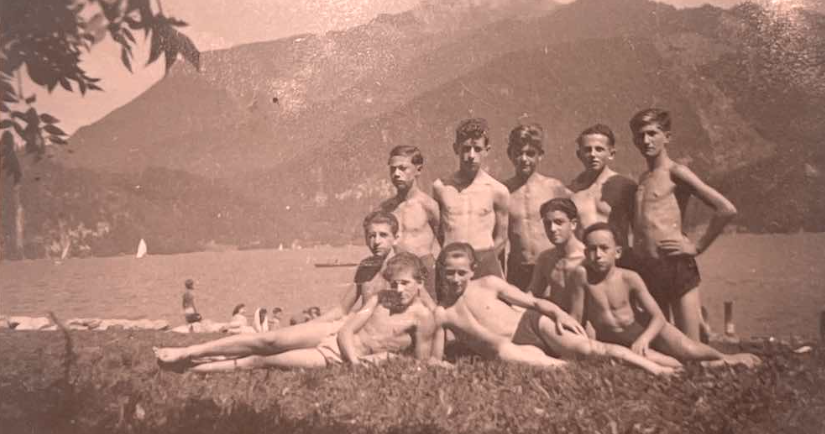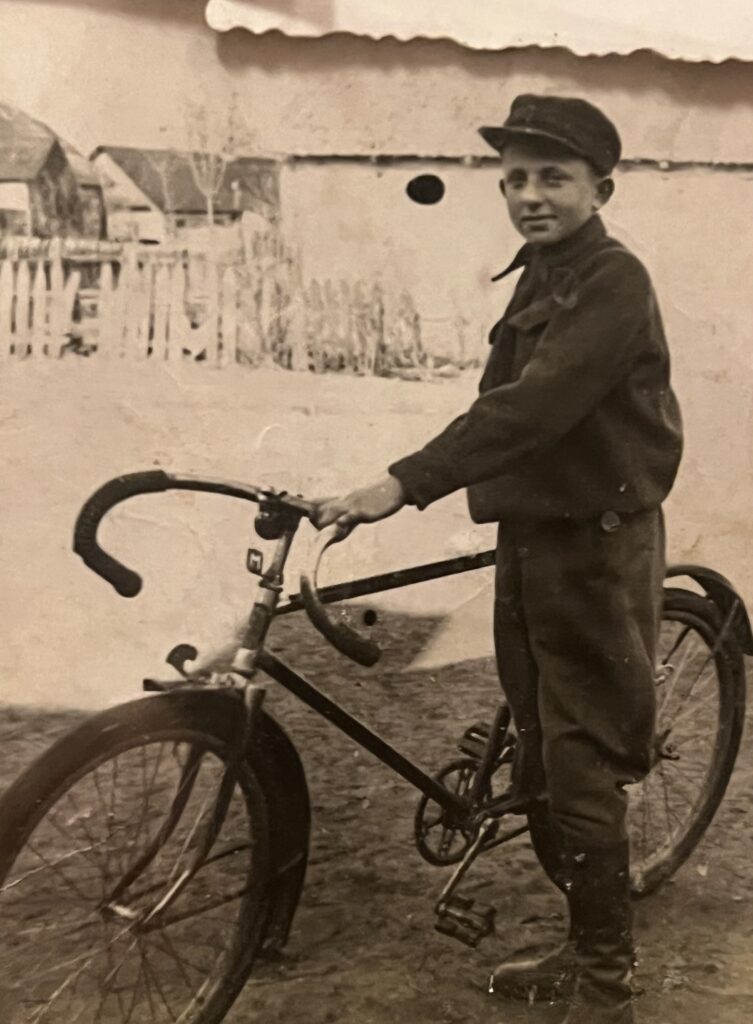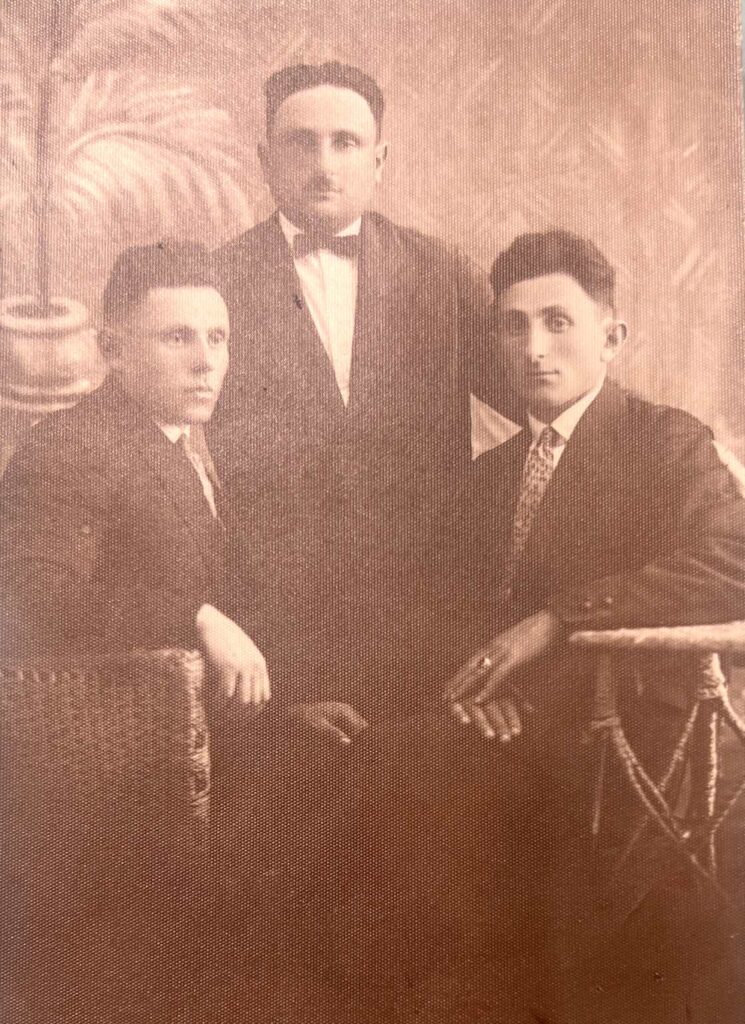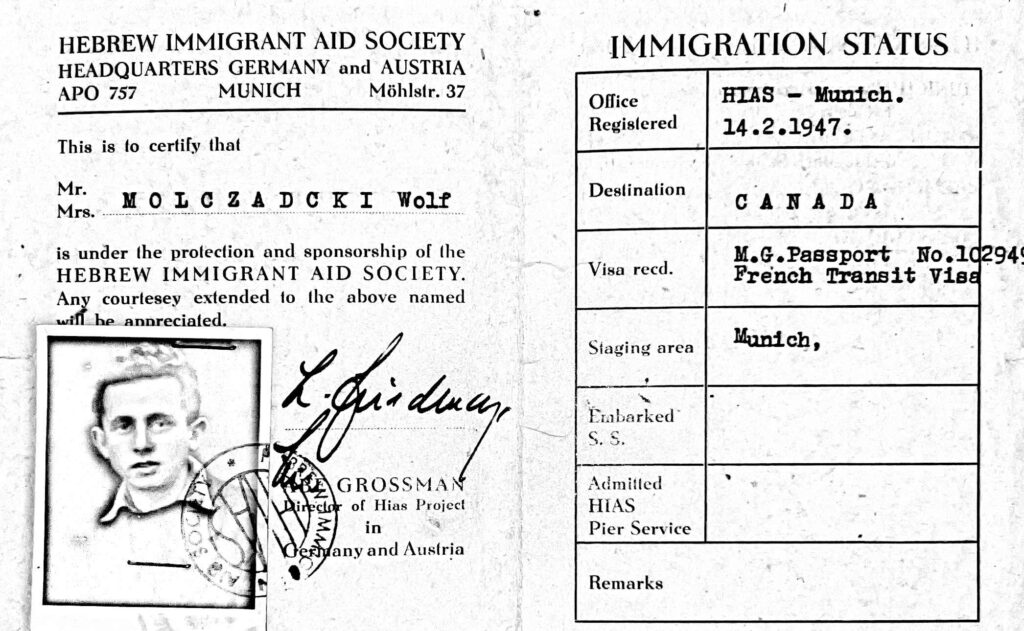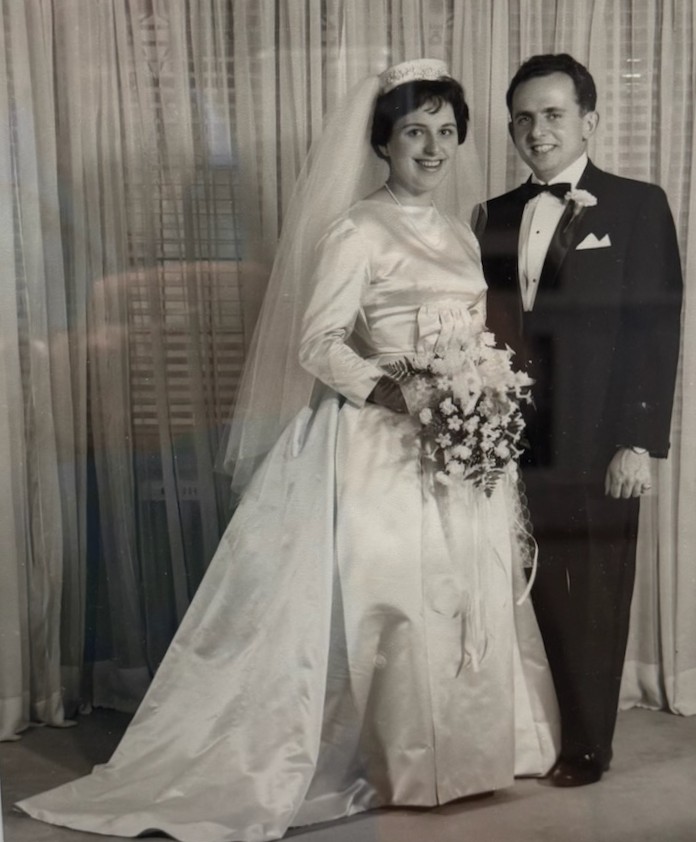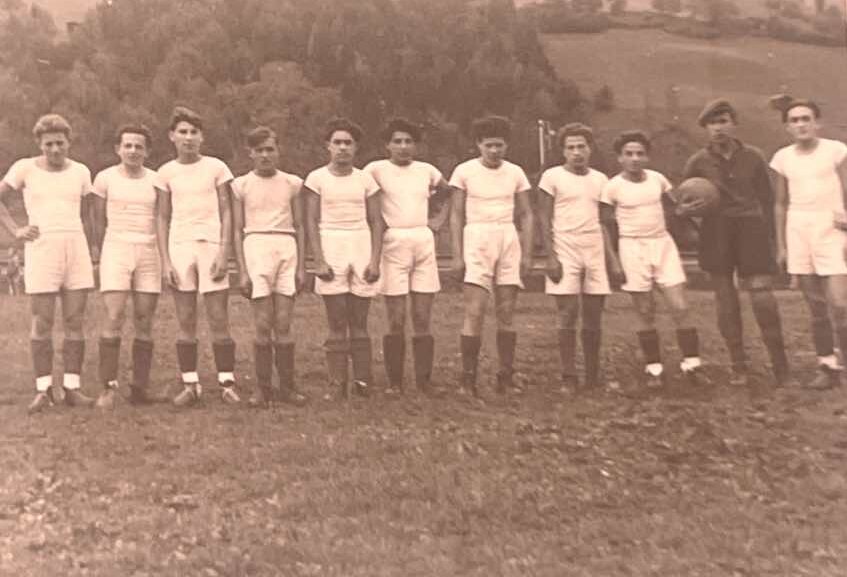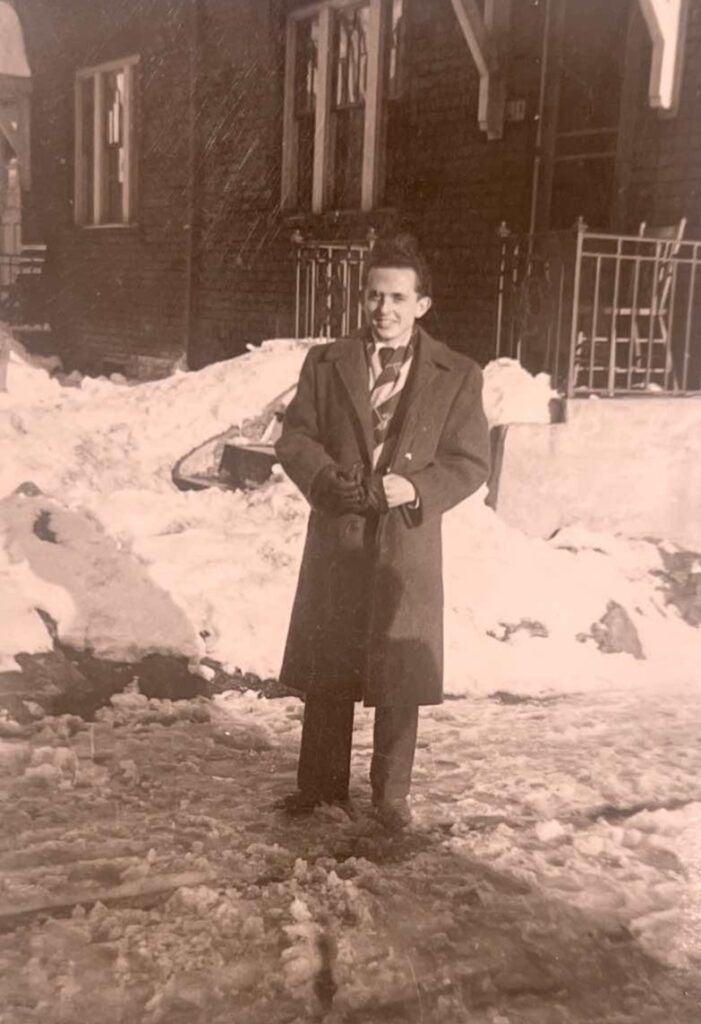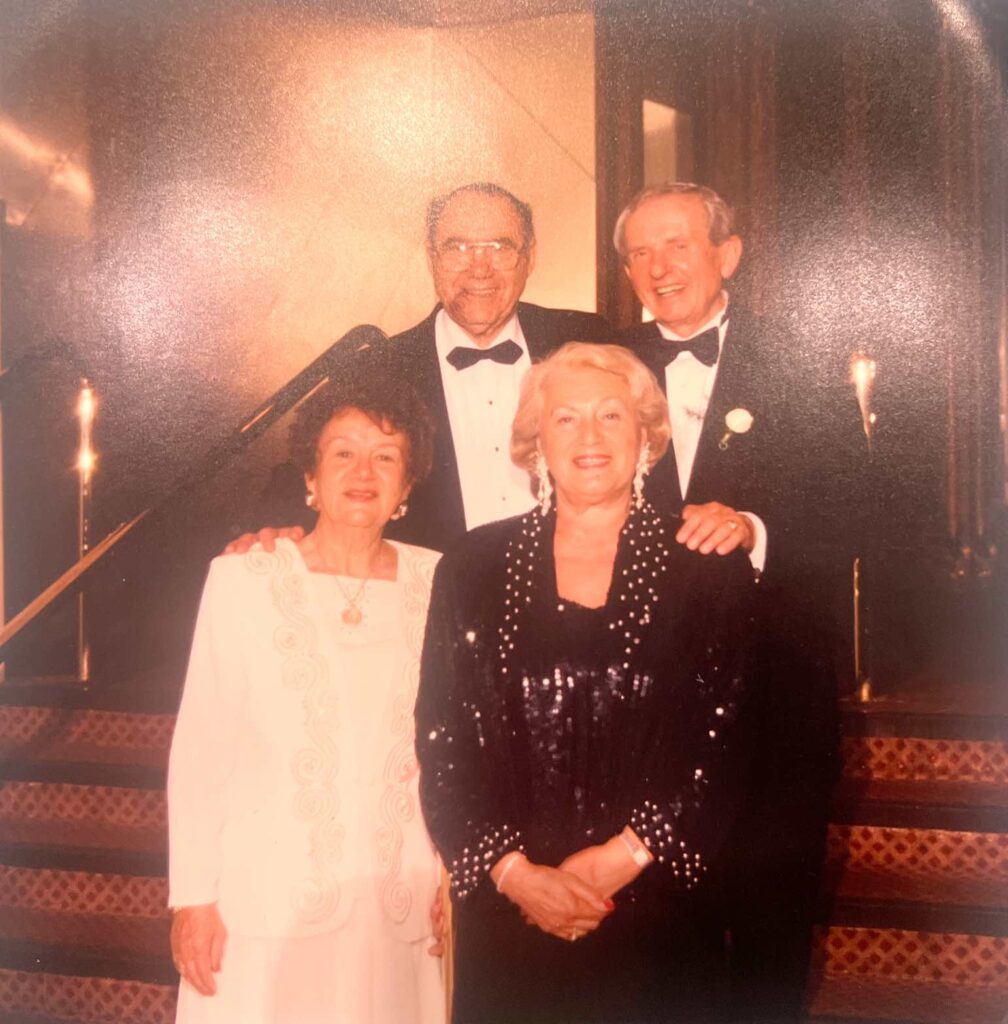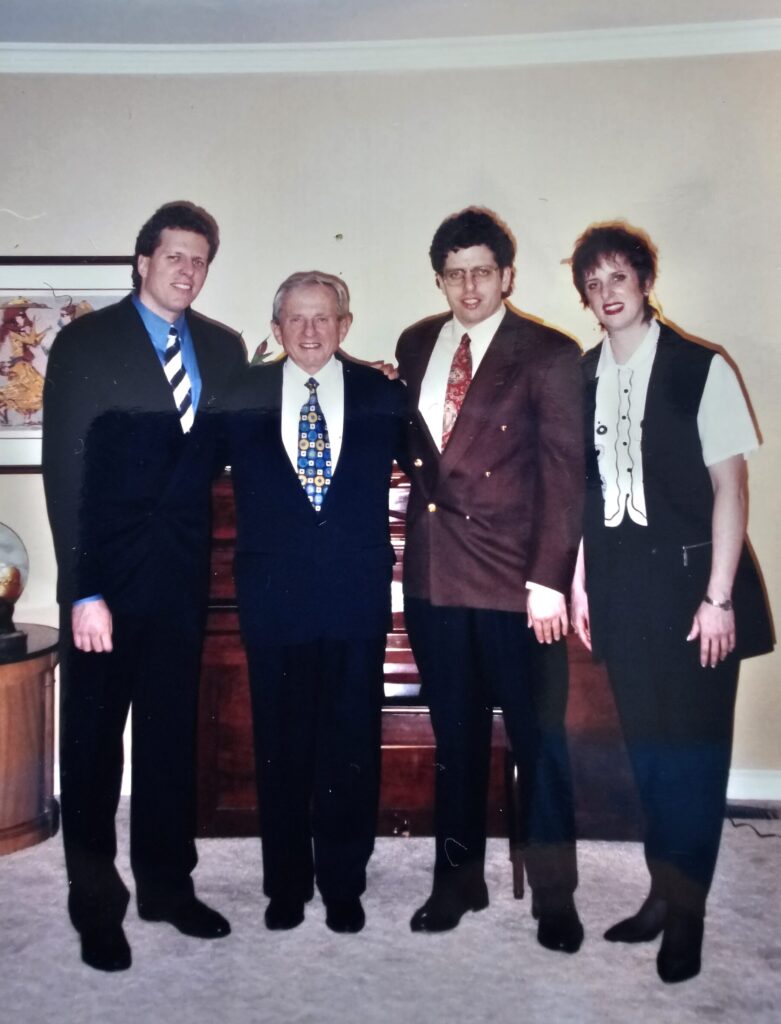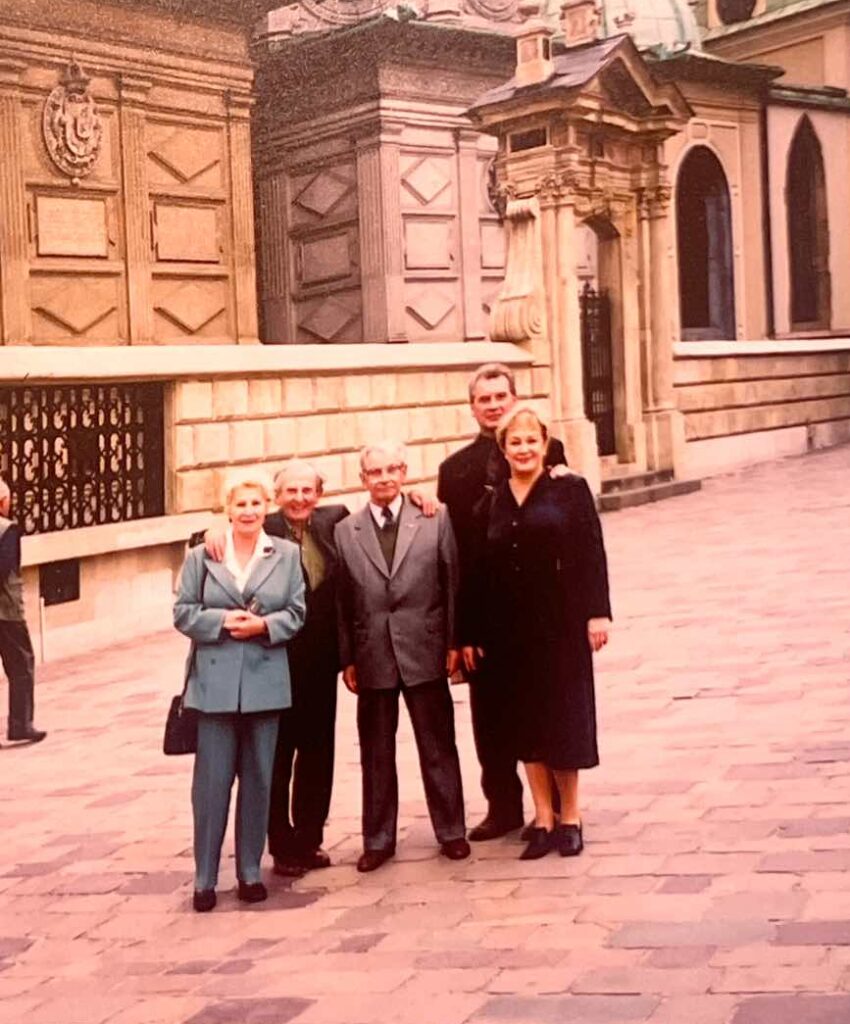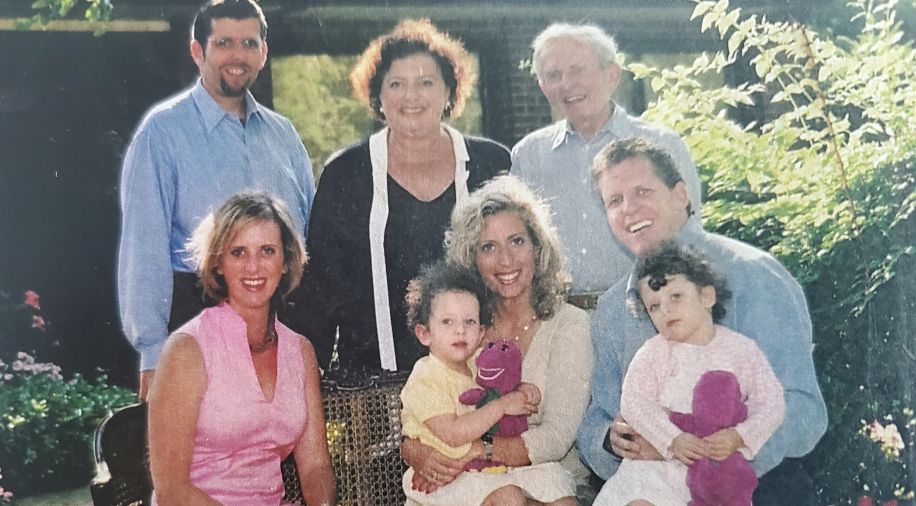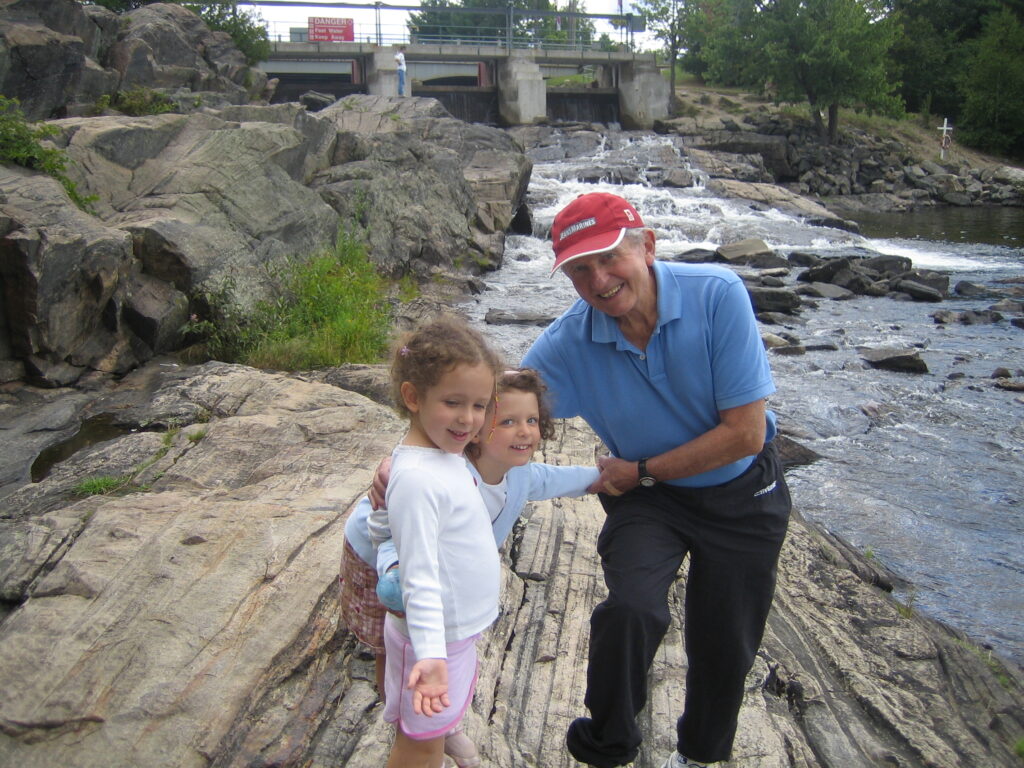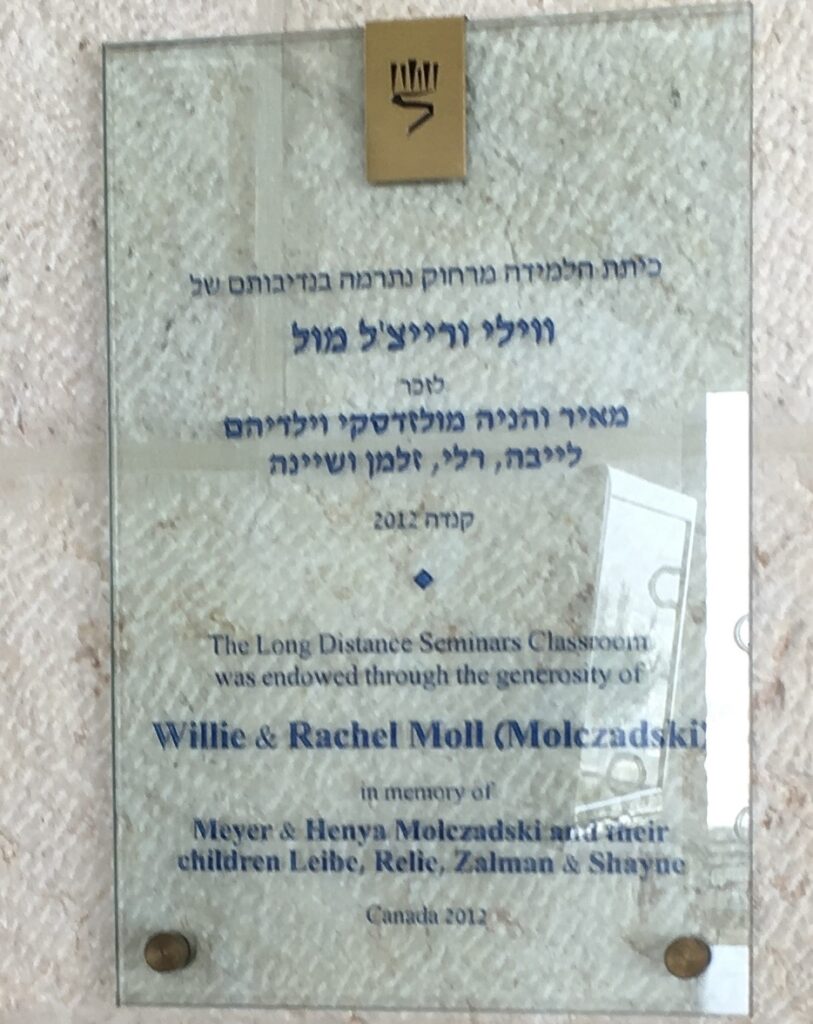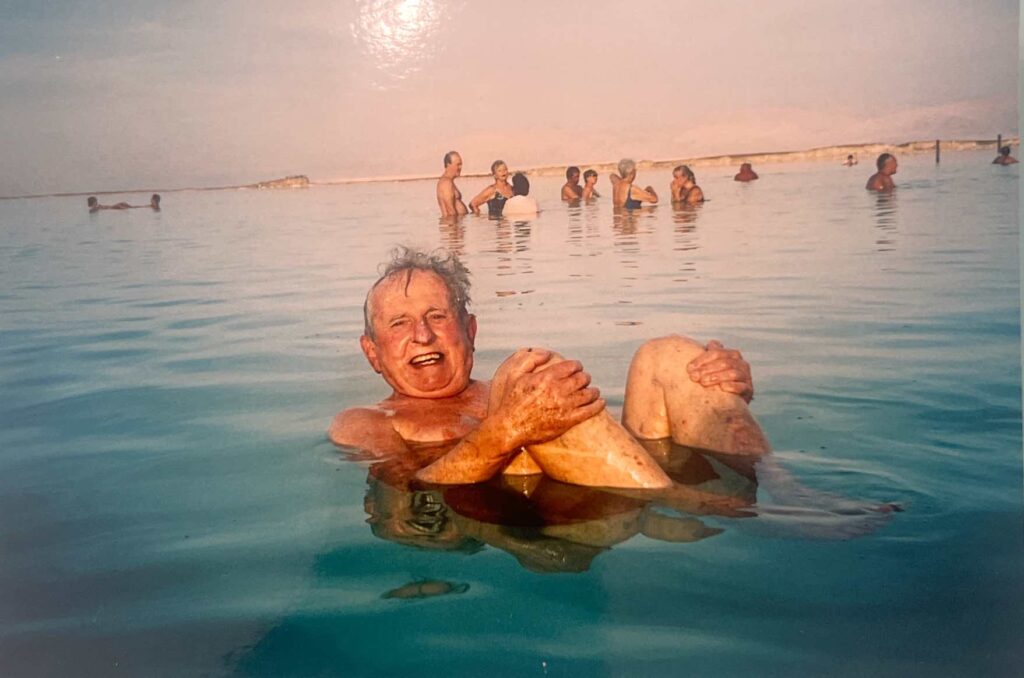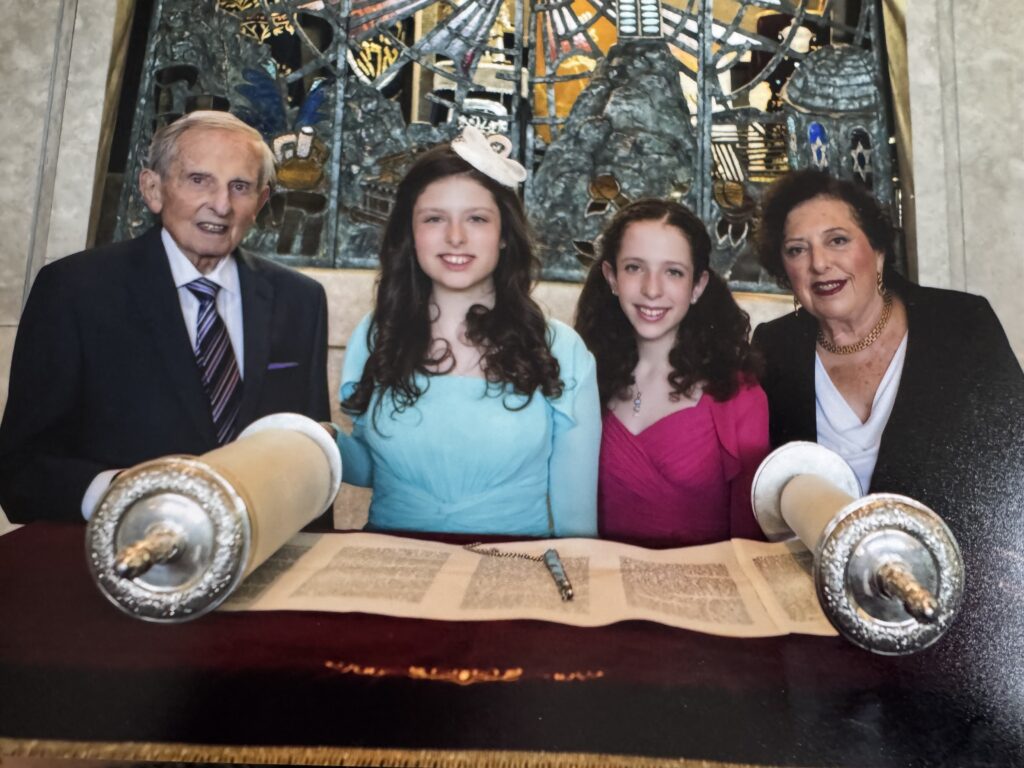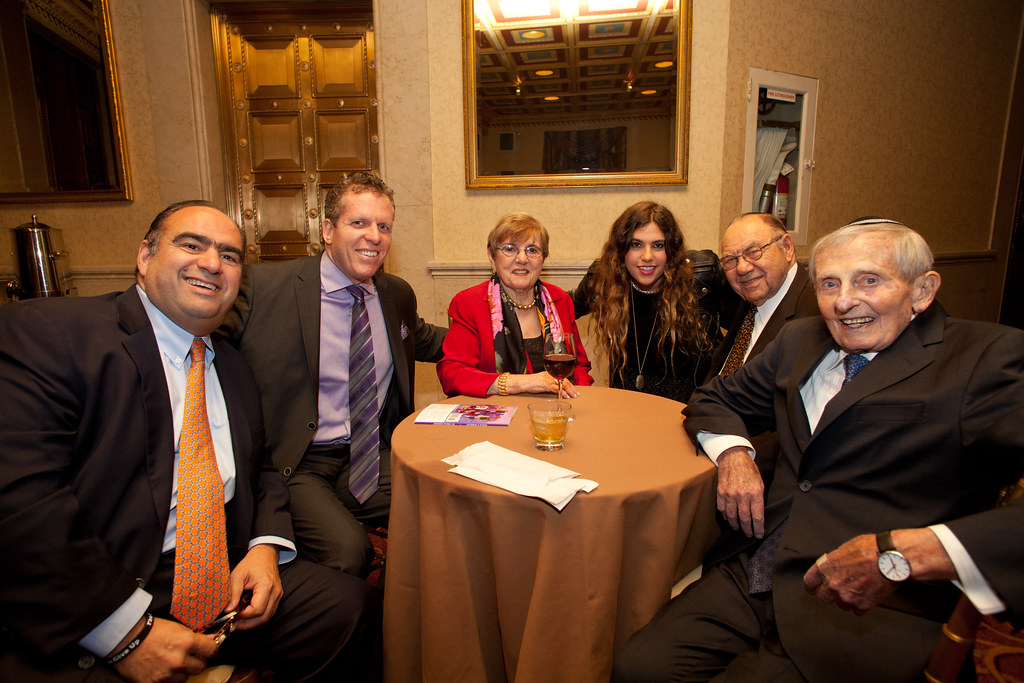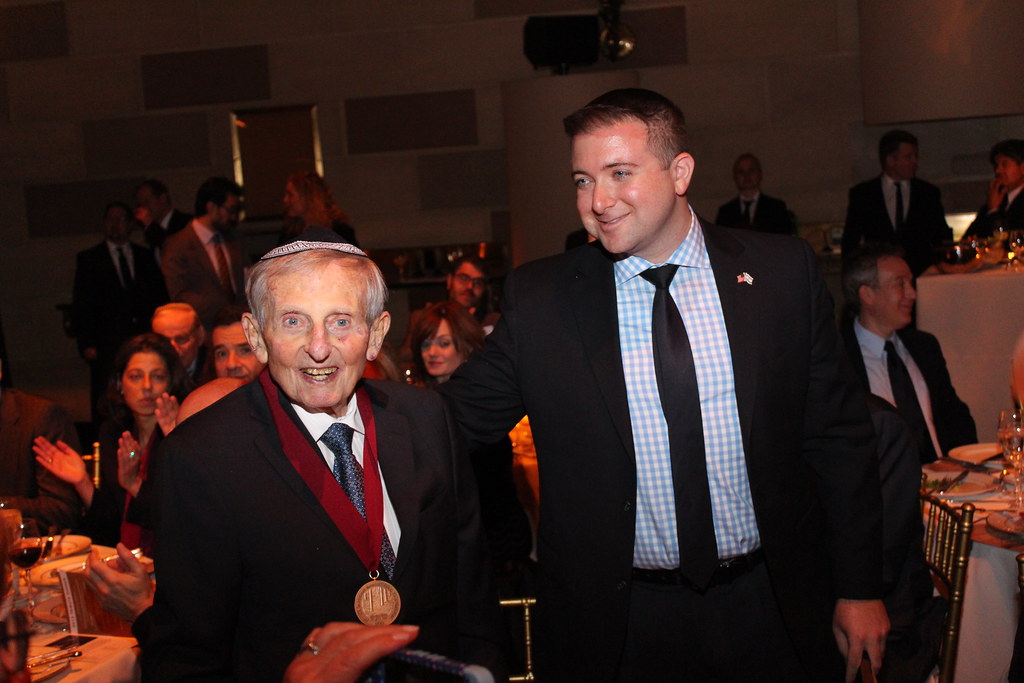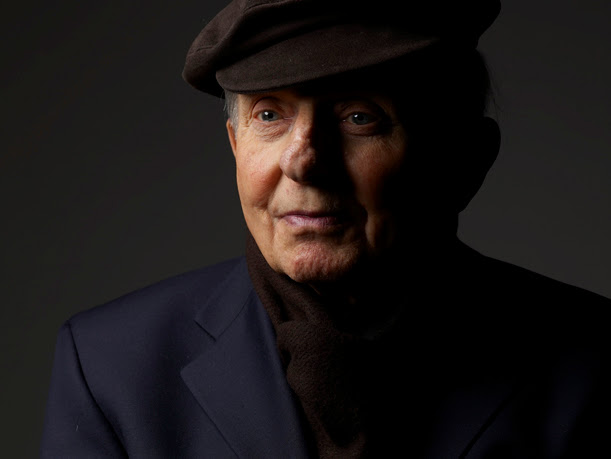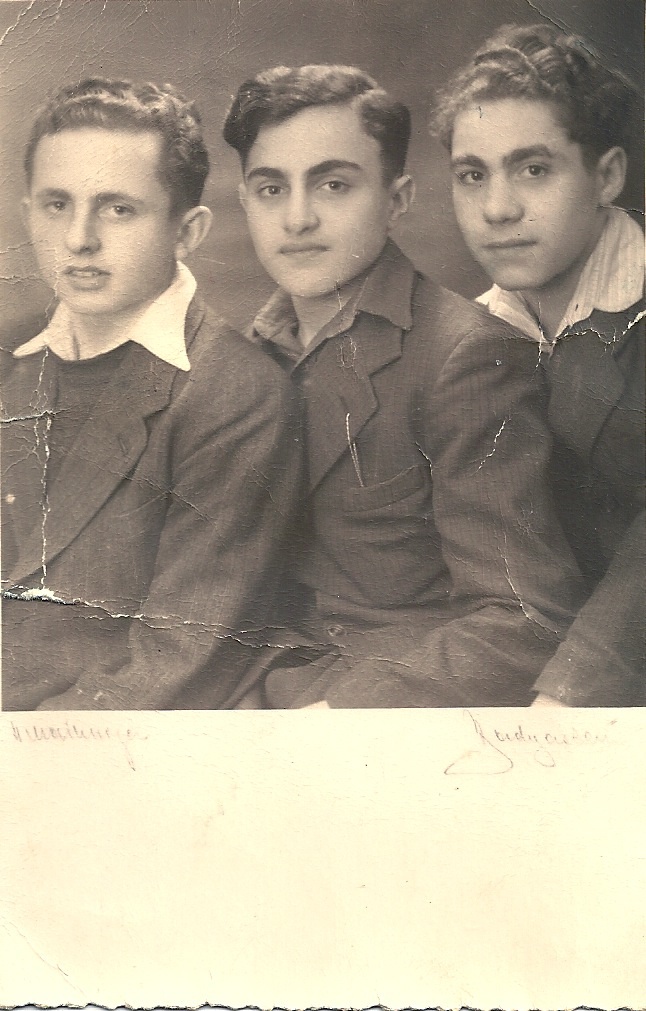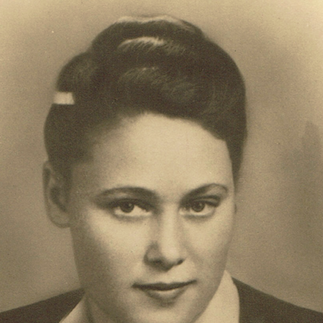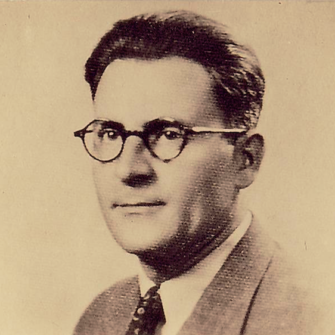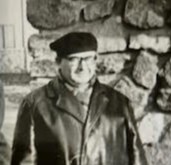Willie Moll (Molczadski) was born on August 8, 1930 in the city of Lida, Poland (current day Belarus). He lived with his parents, Meyer and Henya, along with four siblings Leibe, Relie, Zalman, and Shayne. Willie grew up in a loving home and enjoyed playing outdoors with his friends, especially soccer. During summer vacations, Willie and his siblings stayed at their Uncle Yankel’s farm outside the city. Despite his happy childhood, Willie experienced antisemitism among his Polish neighbors and feared attacks by street gangs.
On September 1, 1939, Germany invaded Poland. Under the Molotov-Ribbentrop Pact signed in August 1939 by Nazi Germany and the Soviet Union, Poland was divided between the two powers. On September 17, the Soviets invaded Poland from the east. Lida became part of the Soviet Union. Willie felt relatively safe under the Soviet occupation, as he experienced less antisemitism from the Soviets than he did from the Poles.
However, food, clothing, and other essential items became scarce commodities during the occupation. Willie waited in long lines to collect food for his family. The Russians imposed strict rules in Lida, including closing the Hebrew schools and forcing Jewish children to attend Russian schools. Willie’s father lost his job as a Hebrew teacher, where Willie had attended school, a profession that, due to its association with Zionism, was not allowed in a communist state. His father found a job as a store clerk and then at a brewery, both run by the government, and did not make much to support the family. Yet, the Molczadski family was generous with the little they had. They took in refugees fleeing from the German occupation in western and central Poland.
Lida was under Soviet occupation until June 22, 1941, when Germany broke the Molotov-Ribbentrop Pact and invaded the Soviet Union. Low-flying German planes dropped bombs on the city and set it ablaze. Lida was destroyed within a few short days, including the Molczadskis’ home. Willie and his family lived in a cramped attic for a month with little to eat. The family decided to move to Schuchin, the hometown of Willie’s mother, which, up to that point, had been spared by the Germans.
Just before Chanukah in 1941, Willie’s aunt Sorel, his mother’s sister, sent a coachman from Lida to Schuchin. In her message, she suggested that her sister send a few of the children to Lida to spend the holiday with her. It would help out Willie’s mother and give her a much needed break. Willie immediately volunteered to go. His parents decided to send two children – Willie and his older sister Relie. As the wagon drove away, Willie looked back at his family for the last time. On the fifth night of Chanukah, December 19, 1941, the Einsatzgruppen arrived in Schuchin. They had a list of the intelligentsia and killed 60 Jews, including Willie’s parents and siblings.
In Lida, anti-Jewish laws were enacted. Jews could not walk on sidewalks, and they were forced to wear yellow stars. A ghetto was soon established. Aunt Sorel’s house was within the ghetto boundaries, but conditions were unbearable in the ghetto. Dysentery was a common illness among the cramped living conditions of starving people. Willie, Relie, and Aunt Sorel prepared a hiding place in the attic as news of massacres started to reach them.
On May 8, 1942, the Nazis began liquidating the Lida Ghetto. The Jews of Lida were marched to a central location and selections were made by the Germans. Those sent to the left were seen fit to work. Those sent to the right were marched to the outskirts of town. They were forced to undress and shot into mass graves.
Willie, Relie, and their aunt hid in their prepared hiding place in the attic during the roundups. They heard the relentless machine gun fire and shouting as Germans searched the buildings for Jews. They held their breath as a flashlight beam came through the cracks of the attic walls, but they were not discovered. At night, they heard Poles breaking into houses and stealing what remained of the Jews’ possessions.
Six thousand Jews were murdered that day, while around one thousand five hundred survived. After the massacre in Lida, the remaining Jews in the ghetto had no doubt about their fate at the hands of the Nazis. That day came on September 17, 1943 when the ghetto was surrounded and liquidated. Aunt Sorel was outside the ghetto at the time. Willie and Relie, along with the remaining Jews, were ordered to walk in columns of fifty to the train station. Willie later discovered that the train’s destination was Majdanek Concentration Camp.
The locals gathered in the street to watch the columns march by, as if it were a parade. In that moment Willie’s intuition told him he had to try and escape. He had determined that he would rather be shot in the back trying to escape than get on the train knowing that the train would be his death sentence. It was then that Willie took the opportunity to escape as the column turned left. He walked straight ahead and didn’t look back. He heard a Polish woman shout, “There’s a Jew!” Willie ran and bolted into an outhouse. A Polish boy noticed Willie and directed the soldier who was pursuing him. The outhouse door flew open, and he was pulled outside. Thirteen-year-old Willie gazed up into the beautiful sky with the painful knowledge that he was about to be shot. But the bullet didn’t come. Willie couldn’t believe it when the soldier brought him back to the column. Willie heard him say to another soldier, “Keep a good eye on that Jew.”
Willie decided to try again. He slowly moved backwards into the other columns and found his sister. He told Relie to run and to meet him at the home of their Polish friends, the Pasternaks. As Relie escaped, Willie found his opportunity when he spotted an opening in the fencing between a building and a high voltage area. He broke away from the column and sneaked through the opening. Willie hid in fields for the remainder of the day. As night fell, he walked to the Pasternaks. Aunt Sorel was there, but Relie never arrived.
They stayed with the Pasternaks for about a month, hiding in an underground bunker that was only three feet high. They remained in hiding until November 1943. Willie passed the time by reading, playing cards, and praying. Willie and his aunt eventually left the Pasternaks and went into the forest, where they planned to locate the partisans.
They joined a Russian unit for a time before finding the Bielski Brigade, an all-Jewish partisan group, in the Naliboki forest. When they arrived in the camp, Willie felt hope returning to him. They were welcomed into the group and given a place in the underground bunkers. Everyone had a job to make the partisan camp operate smoothly. Willie assisted the man who maintained the wagons and cared for the horses that were used for various missions, such as obtaining food and armed resistance operations. Willie’s daily tasks were to help ensure that the wagons were repaired promptly and kept in good condition. He was also responsible for helping to care for a team of horses.
It was a full time effort to feed the partisan group which grew to 1,200 people. Whoever took part in the food missions had to travel over 40 km to raid the local farmers for food. Willie gave out the horse and wagons to the partisans. Although Willie didn’t know anything about horses, he would often tell the partisans that he was giving them a better horse in the hopes that they would give him extra food upon their return. Sometimes it worked and sometimes it didn’t, but Willie’s street smarts served him well during the war and beyond.
In the summer of 1944, the Russians liberated the area. Willie and his aunt returned to Lida for a time before going to a displaced persons camp in Badgastein, Austria. On June 11, 1947, they immigrated to Canada, where Willie became a jeweler’s apprentice. In 1959, Willie married Rachelle Eder, and they had three children and four grandchildren. In 1961, Willie opened W. Moll Diamonds, which is still in operation.
Willie was a member of Adath Israel and supported Yad Vashem, the Canadian Society for Yad Vashem, the UJA, and Toronto General Hospital. He passed away in 2014.

